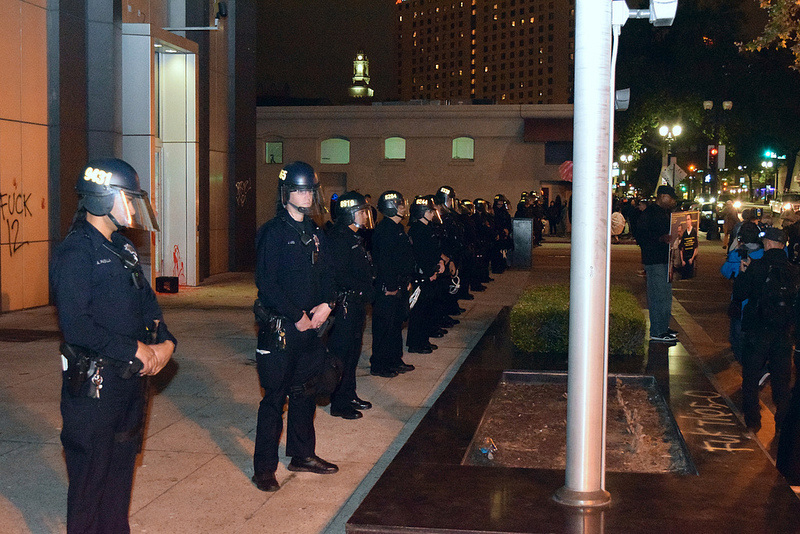| Whatever you may think of the proceedings underway in Cleveland right now, you may be comforted by one thought. At least it’s not happening in Salt Lake City. Oh, it’s been quiet enough, at least up to the time when I’m writing this. But we have a ways to go yet. In a year when protesters have followed Donald Trump like roadies on a concert tour, the opportunity remains for full-scale mischief on the streets. |
| | Already, Cleveland has been the site of daily demonstrations weaving, as USA Today put it, “throughout a barricaded downtown.” A barricaded downtown? Would we want that here? Why? Is it so easy to get to work each day that we need to throw in a bunch of extra obstacles? If you’ll remember, some people wanted the convention here. Three years ago, state GOP Chair James Evans was pushing hard for the city to make a bid for 2016. “I think Utah is the prime example of how great the rest of the country can have it,” Evans told the Deseret News at the time. I agree it’s great here, but the mountain views don’t look so good surrounded by fatigues. All that talk was a long shot at best, anyway. Political parties don’t often hold conventions in states already safely in their grasp, and in 2013 Utah was considered safely Republican. To be fair, the Democrats — who actually might have benefitted in a year when Utah may be up for grabs — also considered Salt Lake City. Two years ago, the party put it on a list of cities that were asked to submit a bid. The state party was smart enough not to pursue that. On the Republican side, Enid Mickelsen, a former congresswoman who now is chair of this year’s Republican Convention Rules Committee, opposed a Salt Lake convention three years ago because of its cost. Smart move. A convention is pretty much all cost and little benefit. That’s not true if you listen to the boosters. It is if you prefer credible academic studies. Victor Matheson, associate professor at the College of Holy Cross, co-authored a study in 2009 that looked at every convention between 1972 and 2004. The bottom line: None of those 18 conventions had any impact on personal income or jobs. They might have gone back one more election cycle and studied what the Democratic Convention of 1968 did for Chicago. I’m guessing the riots that took place on the streets outside weren’t great for economic development. They might even have cost more than the city brought in. “Cities,” Matheson told outsidethebeltway.com, “are good at adding and multiplying” when it comes to calculating the money a convention brings in. “They’re not good at subtracting.” Cleveland hotels may be full right now, but how many locals who otherwise would go downtown are staying away? How much is all the extra security costing? The same could be said of hosting a Super Bowl or (dare I say it?) hosting another Winter Olympics. Major public event these days turn cities into fun-sapping minimum-security prisons. The 2002 Olympics at least had the side effect of making people feel good about the place. Most of the interactions I encountered were pleasant. By contrast, look at how folks in Cleveland felt a week ago, or how people feel in Philadelphia right now. You don’t see a lot of them licking their chops in anticipation of great economic development. Instead, Cleveland was inviting police officers from across the nation, including Utah, to come help patrol the streets. News organizations were, as the Washington Post reported, “issuing gas masks, flak jackets and other protective equipment to journalists who may find themselves covering street protests.” They also were training reporters what to do when the Molotov cocktails start to fly. “Short answer: leave fast,” the Post said. What fun! I write this because I know someone at some time is going to suggest again that Salt Lake City host a major political convention. That may be natural for a city growing in size and stature, but it’s a horrible idea. |


 RSS Feed
RSS Feed

